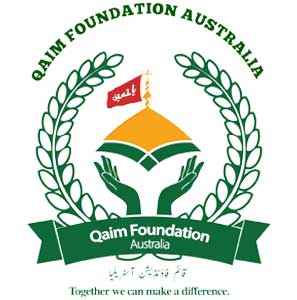AAMAL OF SHAB QADR
THE NINETEENTH NIGHT OF RAMADAN
The nineteenth night of Ramadan is the first of the Qadr Nights. Of course, the Qadr Night (laylat al-qadr) is unmatched in merits, since to practice acts of worship at this night is equal to the acts of one thousand nights. At this night, the affairs of the whole year are decided and the angels and the Greatest Spirit are descended by the permission of Almighty Allah so as to visit the Imam of the Age (i.e. Imam al-Mahdi), have the honor of being present before him, and provide the destinies of all the beings before him.
RECOMMENDED ACTS AT THE QADR NIGHTS
The recommended acts of the Qadr Nights are of two parts; the first part deals with the general acts that are advisably practiced at each of the three Qadr Nights. The second part deals with the private acts that are dedicated to each night exclusively.
GENERAL ACTS
First: It is recommended to bathe oneself at each of the Qadr Nights. According to ‘Allamah al-Majlisi, it is preferable to perform the bathing at sunset so as to be ready for the Isha’ Prayer with a bathing.
Second: It is recommended to offer a two unit prayer reciting at each unit Surah al-Faatehah once and repeating Surah al-Tawheed seven times. After the accomplishment of the prayer, the following imploration should be repeated seventy times:
استغفر اللّه و اتوب اليه
According to a Hadith reported from the Holy Prophet (s.a.w.a.), Almighty Allah will forgive one who offers this prayer and will forgive his parents before he leaves his place.
Third: It is recommended to open a copy of the Holy Qur’an between one’s hands and say the following:
اللّٰهُمَّ اِنِّي اَسْاَلُكَ بِكِتَابِكَ الْمُنْزَلِ وَ مَا فِيهِ وَ فِيهِ اسْمُكَ الْاَكْبَرُ وَ اَسْمَاؤُكَ الْحُسْنَى وَ مَا يُخَافُ وَ يُرْجَى اَنْ تَجْعَلَنِي مِنْ عُتَقَائِكَ مِنَ النَّارِ.
Then, one may pray God to fulfill one’s desires.
Fourth: It is recommended to put a copy of the Holy Qur’an on the head and say the following:
اللّٰهُمَّ بِحَقِّ هٰذَا الْقُرْآنِ وَ بِحَقِّ مَنْ اَرْسَلْتَهُ بِهِ وَ بِحَقِّ كُلِّ مُؤْمِنٍ مَدَحْتَهُ فِيهِ وَ بِحَقِّكَ عَلَيْهِمْ فَلا اَحَدَ اَعْرَفُ بِحَقِّكَ مِنْكَ
Then, one should repeat each of the following ten times:
بِكَ يَا اللّٰهُ
بِمُحَمَّدٍ
بِعَلِيٍّ
بِفَاطِمَةَ
بِالْحَسَنِ
بِالْحُسَيْنِ
بِعَلِيِّ بْنِ الْحُسَيْنِ
بِمُحَمَّدِ بْنِ عَلِيٍّ
بِجَعْفَرِ بْنِ مُحَمَّدٍ
بِمُوسَى بْنِ جَعْفَرٍ
بِعَلِيِّ بْنِ مُوسَى
بِمُحَمَّدِ بْنِ عَلِيٍّ
بِعَلِيِّ بْنِ مُحَمَّدٍ
بِالْحَسَنِ بْنِ عَلِيٍّ
بِالْحُجَّةِ
One should then pray Almighty Allah to fulfill one’s desires.
Fifth: It is advisable to visit the holy tomb of Imam al-Husayn (a.s.) at these nights. A Hadith, in this respect, reads that at the Qadr Nights, a caller from the heavens will call from the Seventh Sky and, specifically, from the centre of the Holy Throne that Almighty Allah shall forgive whoever visits the tomb of al-Husayn (a.s.).
Sixth: It is highly advisable to spend the whole three Qadr Nights with acts of worship. A Hadith reads that one who spends the whole Qadr Nights with acts of worship will have all his sins forgiven even if they are as many as stars, as heavy as mountains, and as weighty as seawater.
Seventh: In order to win its remarkable reward, it is recommended to offer the one hundred unit prayer. It is preferable to recite at these units Surah al-Faatehah once and repeat Surah al-Tawheed ten times.
Eighth: It is recommended to say the following supplicatory prayer:
اللّٰهُمَّ اِنِّي اَمْسَيْتُ لَكَ عَبْدا دَاخِرا لا اَمْلِكُ لِنَفْسِي نَفْعا وَ لا ضَرّا وَ لا اَصْرِفُ عَنْهَا سُوءا اَشْهَدُ بِذَلِكَ عَلَى نَفْسِي وَ اَعْتَرِفُ لَكَ بِضَعْفِ قُوَّتِي وَ قِلَّةِ حِيلَتِي فَصَلِّ عَلَى مُحَمَّدٍ وَ آلِ مُحَمَّدٍ وَ اَنْجِزْ لِي مَا وَعَدْتَنِي وَ جَمِيعَ الْمُؤْمِنِينَ وَ الْمُؤْمِنَاتِ مِنَ الْمَغْفِرَةِ فِي هَذِهِ اللَّيْلَةِ وَ اَتْمِمْ عَلَيَّ مَا آتَيْتَنِي فَاِنِّي عَبْدُكَ الْمِسْكِينُ الْمُسْتَكِينُ الضَّعِيفُ الْفَقِيرُ الْمَهِينُ اللّٰهُمَّ لا تَجْعَلْنِي نَاسِيا لِذِكْرِكَ فِيمَا اَوْلَيْتَنِي وَ لا [غَافِلا] لِاِحْسَانِكَ فِيمَا اَعْطَيْتَنِي وَ لا آيِسا مِنْ اِجَابَتِكَ وَ اِنْ اَبْطَاَتْ عَنِّي فِي سَرَّاءَ [كُنْتُ] اَوْ ضَرَّاءَ اَوْ شِدَّةٍ اَوْ رَخَاءٍ اَوْ عَافِيَةٍ اَوْ بَلاءٍ اَوْ بُؤْسٍ اَوْ نَعْمَاءَ اِنَّكَ سَمِيعُ الدُّعَاءِ
Al-Kaf’ami has narrated that Imam Zayn al-’Abidin(a.s.) used to say this supplicatory prayer very frequently at the Qadr Nights while sitting, standing, genuflecting, and prostrating.
‘Allamah al-Majlisi has mentioned that the most favorable rite at the Qadr Nights is to implore for Almighty Allah’s forgiveness, to mention Him, to pray for the settlement of one’s worldly and religious affairs as well as for one’s parents, relatives, and brethren-in-faith; the dead and the alive, and to invoke blessings upon the Holy Prophet and his Household.
According to some narrations, it is recommended to say the famous supplicatory prayer known as Dua al-Jawshan al-Kabir, which has been previously cited in this book, at the three Qadr Nights.
It has been also narrated that when he was asked about the best prayer that one may say at the Qadr Night, the Holy Prophet (s.a.w.a.) said, “Pray for good health.”
